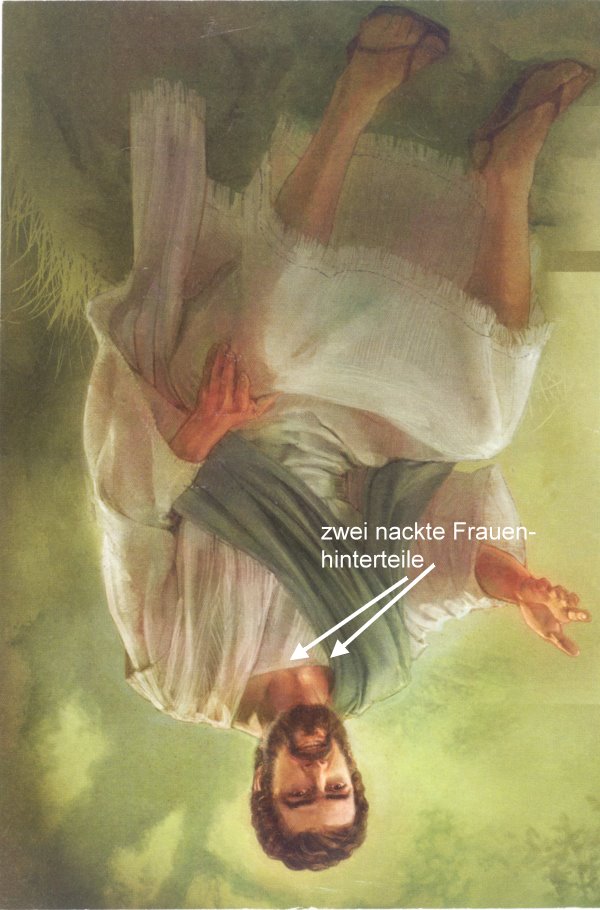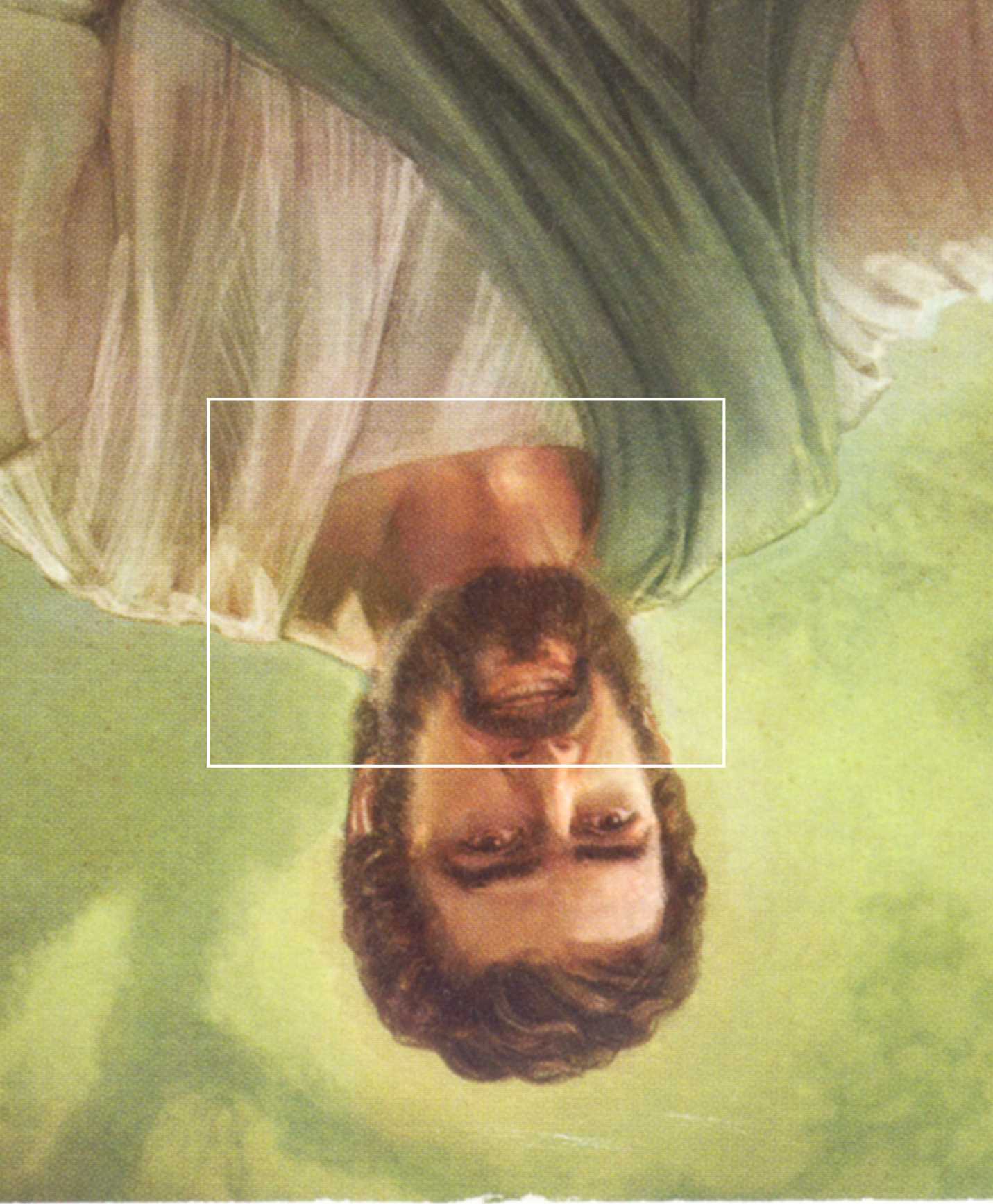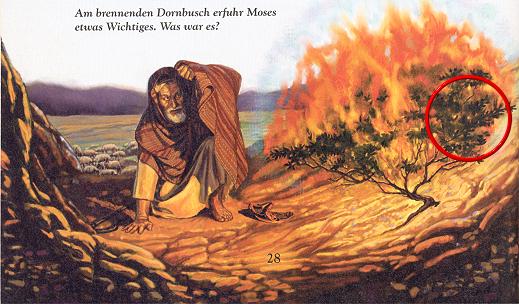Education versus faith in God?
by Unknown
The Recruitment of Jehovah's Witnesses
In the Watchtower of April 15, 2008, the Watchtower Society published an article for its believers about worthlessness that should be decisively rejected. For outside readers, certainly surprisingly, education also counts among the worthless things; not fundamentally, but rather from a certain level.
It is said that it is something useful that can become something worthless. Certainly, a certain amount of education is needed even by the Jehovah's Witness Governing Body among its members! For example, they should be able to read, because what else should Jehovah's Witnesses do with the organization's printed materials? But very quickly education becomes something worthless. The Watchtower says on page 4, paragraph 10: "What about getting higher education at a college or university? ... This is a waste of valuable youth years that could have best been spent serving Jehovah [the organization! The author] ... Is it just a coincidence that in countries with many academics the faith in God has reached an absolute low?"
God's Faith on a Lost Post?
This last argument seems to be superficially true. In the western secularized world the faith in God is only to be found in a minority. But is education to blame for this? Or is it not rather the tendency in this argumentation, which can be found in all authoritarian or even totalitarian structures, that people with little education are easier to handle, to guide and to lead? Doesn't the limitation of information declared as "protection" also serve the same purpose in such systems, namely to bring about a dependency on the system?
Is the Watchtower Society about faith in God?
I remember that a Hitler tried to exterminate the educated class in Poland; he intended to treat the Polish people like a horde of slaves, to limit their education to a minimum. – It was said at the time that it was sufficient to have a knowledge of arithmetic of up to 500 in order to prevent any intellectual ability to criticise and make decisions.
Were there not also voices in the Middle Ages who rejoiced and found it useful that the Bible was not available in the vernacular and was widely disseminated because people were easier to lead? Wasn't the equation "the more uneducated = the more dependent" rather correct? What is the difference between the so-called "blue ants" Mao Tse-tungs and the "locusts" of the governing body? What does it boil down to when it is said on page 6, paragraph 17? "Apostates also utter worthless words when they claim to have greater wisdom than the faithful and understanding slave appointed by God" or on page 11, paragraph 18, under the interjurisdictional theme "How does Jehovah guide us"? "The most important role is played by the faithful and intelligent slave with his guiding body" (thus probably no longer God's word or even God's spirit)! Everything must first be filtered by the slave.
Here tendency and intention are clearly to be recognized: Dependence on this organization, recognition of this organization, submission to this organization!
Education as the Destroyer of the Faith in God?
But back to the opening statement! Is higher education the cause of the decline in the faith in God? Is this also confirmed by the numerous witnesses who leave the organization and then throw their faith in God overboard? For example, has the faith in God in our country decreased proportionally to the increasing number of students? At the end of the 1940s, about 5% of the pupils in a given year graduated from high school (Matura) and thus had a university entrance qualification (although not all of them became academics); today there are many more. Has the faith in God diminished accordingly in these 70 years? It is difficult to measure, but let us consider the historical background in a broader context.
Opportunity rather than education
The argumentation of the Watchtower gives the impression that the time of the Middle Ages and modern times was a time full of faith in God. Was it so? When in the fourth century Constantine, the Roman emperor, got rid of his competitors, he wanted to use Christianity as a stabilizing element for his empire. The power of paganism had long since been extinguished. Until then the Christians had survived many persecutions, including 10 great ones, had stood up for their faith with their lives and had shown true faith in God. But now Christianity suddenly became the state religion, the only recognized form of religion. It became opportune to become a Christian because it was useful for life and career.
So the pagan world flowed into the Christian community; its pagan customs were assimilated, incorporated. In addition there were also forced conversions. At this point I would like to mention what came out of this – in contrast to the true faith in God according to Christian, biblical doctrine – as religiosity. The influence of the Roman Church increased, especially after the Roman empire had perished in the storms of the migration of peoples. Now it may even have been dangerous not to be religious and thus systemic; there were heretical persecutions and autodafés, heretical and inquisition courts. This promoted religiosity; but did it also promote genuine faith in God? I think there was true faith in God at that time, but under the haze, the fog, the cover of general and ubiquitous religiosity, it was just as rare – and precious – as it is today. By the way, even today there are still regions in the world where this religiosity is still strongly represented. Surely there is also genuine faith in God there. But one must not equate both.
Faith and Science
One means of maintaining this religiousness was certainly the lack of education and information. The Roman Church then went so far as to stylise faith and science into an apparent contrast – especially from the time of Copernicus and Galileo – and it still has to bear this mortgage today, even though it is trying to dismantle it, and there are still people today who think that faith and science are opposites. But if a Creator exists, as the Bible clearly states, then the laws of nature that he created cannot contradict faith in him.
Religiousness is not faith
But that would be an issue in itself. Anyway, some things came together in modern times: Reformation, book printing, Renaissance with the appreciation of the educational ideals of antiquity, universities, humanistic ideas, diversity of information, etc. This did indeed contribute to a decline, but not – apart from possible individual cases – to a decline in the faith in God, but to a decline, an illumination of this superimposed cloud of religiosity. One became critical of the church. One asked questions, sought answers, became uncomfortable to the religious (but also to some other) authorities. Even a counter-reformation basically could not change that. Suddenly one saw that the true faith in God was only the conviction of a minority. But it had always been. One was religious as long as it was useful (Ludwig Thoma described it beautifully in his "Member of the Landtag Filser").
Artificial contrast
It still exists today, wherever religiosity is useful. But it is true that in the western world this religiosity has decreased greatly. Faith in religious systems declined. True and system-independent faith in God, a faith based on God and His Son Jesus Christ, on His Word, which was already sparsely spread before and still is today. But here the Watchtower tries to bring education into opposition to faith in God, because it must fear that education produces the same effect in the theocratic system as in the others, namely system criticism and system independence; and an authoritarian slave cannot need that. He shuns that like the devil shuns holy water. That is why he must resist the beginnings!
Also in the organization of the witnesses the religious system dependence is widespread; where we should go then, it is often said (and this is not a quotation of the words of Peter to Jesus). One thinks one needs a system. Christians, of course, seek communion with believers; this is not only legitimate, but even very important. But this does not mean dependence on faith. Totalitarian systems, on the other hand, want dependence. And that makes them fear higher education and information. Why is only the New World translation usually used in the assemblies of witnesses? If someone uses another translation, even only reads it, it is very noticeable; I myself have often been addressed there. Why are only writings of the Watchtower Society mentioned in the assemblies as documentation or source material? The reasons for this are obvious. In the booklet "Jehovah's Witnesses and the School" specially published for teachers, it is claimed that in every assembly of the Witnesses there is a library. But look at such a – usually unused – library, what you find in it! Library? The intention is obvious.
Reality in man
Yesterday I had the opportunity to speak with a former witness, whose father is still a convinced witness and member of the branch office in Serbia/Macedonia. He himself grew up as a child of witnesses, but in his words he was already aware at the age of seven that when he grew up he would leave this community. His education was not to blame for his decision; he did not lose his faith either, because you can't lose anything you never had. And so there are many people who use their education – or even science – only to justify their lack of interest and faith; but they had never seriously dealt with faith; it didn't interest them at all. They would also be uneducated, just as unbelieving, they would at most be religious if this turned out to be useful to them.
But this is not important to an authoritarian system; as long as someone submits, he may or may not be inwardly unbelieving; as long as he obeys the instructions of the governing body, he is considered a brother or sister; if someone leaves, he has lost his faith (which one?); dangerous and to be fought against, to demonize are those who nevertheless keep their true faith in God, his Son and his Word, independent of the system of the faithful and intelligent slave. This is dangerous; it must be dealt with here, and one can read in almost every internal watchtower the claims to authority and also the self-adulation of the slave, as well as utterances about such believing apostates.
No wonder that the governing body rejects higher education; not because genuine faith in God, if any, is lost thereby, but because the theocratic religious mist is driven out by the light of the Word of God, because thereby the light of Jesus shines, of whom he said to his disciples, "You are the light of the world. Religious fog existed then and still exists today, and one can only hope that through education and information it will continue to decline.






